10 Words That Should Never Be Used To Describe Your Friendships

Personally, I’m not big on New Year’s Resolutions. A big part of the reason is because I think that there is a huge mind f-ck that comes from thinking that something miraculous automatically happens on January 1. Y’all, every day is new — so, if you want to change your life (or something about it), right now would be the time to do it…because why wait when you know that tomorrow is promised to no one?
Not to mention the fact that I think a huge factor in why, reportedly, almost 90 percent of people “fail” their resolutions before Dr. Martin Luther King, Jr’s Day rolls around is because people apply way too much pressure and stress onto themselves to come up with some on-10 willpower plans a couple of days before the ball drops and the new year begins.
I mean, just think about it: If you are a resolutions kind of gal, imagine how much easier it would be to make them — and practice keeping them — if you didn’t wait for six weeks (give or take) from now? And when it comes to your friendships, specifically, what if your transitioning consisted of doing some (semi) immediate inventory on those relationships? One way to do it is to check out my article, “10 Questions To Ask Your Close Friends Before The New Year Begins” (“Texting Your Friends This One Question Will Reveal A Lot About Your Relationship” might come in handy too). However, before you even take that step, consider reading this piece all the way through…first.
Why? Well, I once read that, reportedly, a whopping 75 percent of men and 84 percent of women have admitted that they’ve had at least one toxic friend over the course of their lifetime (check out “10 Signs You’ve Got A Close (TOXIC) Friend”), it got me to thinking about how so many of us find ourselves in that position — usually more than once too.
And y’all, it is my belief that it’s because we overlook the 10 words that I’m about to break down a bit today — things that, aren’t necessarily “toxic” on their own; oh, but if they are ignored or not addressed long enough, like a snowflake that rolls into other ones and ultimately creates an avalanche, it definitely can turn a friendship into a relationally poisonous situation.
So, let’s address them…then you decide what needs to be done — not after Christmas either. Now.
1. "Complicated"
 Giphy
GiphyIt is my personal opinion that when Facebook made “it’s complicated” an option as far as relationship (or situationship) statuses went, that’s when the phrase started to become more acceptable. And you know what? It’s also my personal opinion that it never should have been. SMDH. When something is complicated, that means it’s complex, difficult to understand, and perplexing — and what all of this boils down to is there is a lack of clarity going on…which means there is probably some poor communication that is transpiring too.
Whether that’s the result of you walking on eggshells, both of you making a lot of assumptions or your relationship being such an emotional roller coaster ride that you’re not exactly sure where the two of you stand, friendships shouldn’t be complicated. And so, if one or more of yours are, it’s time for some serious conversations to be had.
2. "Sometimey"
 Giphy
GiphyWhenever someone tells me that they have a best friend who they don’t talk to very often, my face almost always scrunches up; especially when I hear something like, “We can go six months without talking and pick up right where we left off.” Uh-huh. Back when I used to watch The Young and the Restless with my great-grandma during the summer, once it was time to go back to school, I could pretty much pick back up on the storylines the following summer.
That’s pretty crazy too because all that means is there was familiarity and predictability involved…not necessarily any intimacy. Do you see where I am going with this? And when it comes to your dearest friendship, if you and your BFF are so close, why isn’t your relationship higher on your priority list? Both of y’all’s priority list?
One reason why a lot of people suck at friendship is because they are hella inconsistent when it comes to nurturing it. I mean, even a plant needs to be watered on a weekly basis. If your friendships are sometimey, that could cause some unexpected issues up the road.
3. "One-Sided"
 Giphy
GiphyReciprocity should always reign supreme in friendships. And although you and your friends may not give in the same way, there is no reason for you to feel like you are doing all or most of the work to keep the relationship going. Case in point: There is someone who, to this day, I think is cool as hell, and, back in the day, although I didn’t consider her to be a close friend, she definitely was a friend of mine.
Anyway, I haven’t talked to her in like five or six years now at this point. Why? Because something she is horrible at is following through with what she says that she is going to do — including calling people back. And so, the last time that I saw her and she said, “I’m gonna call you,” I responded with, “And that will be the next time that we speak, chile” — I haven’t heard a word since. Fast forward to earlier this year, someone asked me how she was.
When I said, “I don’t know” and they inquired why and I explained what I just said to y’all, they said, “Girl, just call her. She probably forgot.” So…I need to catch that slack because…? Really, all she did was show me that the reason why we stayed in touch at all is because I used to do most of the work — and she liked it that way.
If I end up running into her, we’ll still hug it out and catch up but y’all, I have too many friends who actively participate in my friendship with them who need to get some of my time to chase folks who don’t. One-sided friendships aren’t friendships. They need to be demoted to good acquaintances or…something like that (check out “6 Differences Between A Close Acquaintance And An Actual Friend”).
4. "Draining"
 Giphy
GiphyPeople who always or only talk about themselves. People who are constantly in a crisis. People who always need some form of validation. People who are moody AF. People who can’t seem to talk about anything but other people. People who are the textbook definition of energy vampires. People who are obsessed with being the center of attention (whether it’s online or off). People who like to play the victim (i.e., rarely take accountability for their actions; more on that later). People who lack self-awareness. People who hold you to a standard that they don’t even hold themselves to. Do you know what these kinds of people are? DRAINING.
And the thing about your friendships is, more times than not, you should be able to go to them to get a boost of energy, positivity, and humor — something that refuels you instead of exhausts you. Some of y’all, your friends have been draining you for so long that you’ve been gaslit into believing that is what comes with having friends (check out “This Is How A Friend Can Gaslight You — And Make It Feel Like It's Your Fault.”) Nope. If it seems like whenever you’re around someone, they wear you out on a mental and emotional level, that’s not healthy, sis. Please stop telling yourself otherwise.
5. "Hypercritical"
 Giphy
GiphyNow this one is the kind of “bright orange flag” that you may not see coming on the surface. I say that because, while you might think that hypercritical people are only those who have something you say about damn near everything you do, typically, a hypercritical friend is hard on you because they are even harder on themselves.
The way it tends to manifest is they are perfectionists and/or don’t know how to give or receive compliments and/or are super defensive when receiving feedback and/or they seem to constantly be on edge and/or they are always nitpicking and/or they fear failure (or you failing) — and so they aren’t very merciful.
In short, a hypercritical person lacks self-compassion which is why they aren’t very good at granting you any — and since you’re gonna make mistakes or even consciously poor decisions sometimes, because they are so hard to be around, they rarely are a safe place to land.
6. "Unsupportive"
 Giphy
GiphyIn my latest book, there is a chapter devoted to a guy who I once had feelings for who turned out to be one of the most narcissistic individuals that I have ever known — and no, I do not use that word lightly. As I was penning the chapter, one of the things that I reflected on is how unsupportive he was while I was supporting him all of the way. An example? The amount of media coverage that I got him in just two years of working with him? He hasn’t seen it before or since and yet, even though he had some substantial connections, ask me if he asked if I needed assistance one time in basically two decades.
His family dynamic? It is supremely dysfunctional on so many levels and yet, when I decided to release some of my relatives (check out “Why I Don't 'Cut People Off' Anymore, I Release Them Instead”) because they were toxic (check out “Why You Should Be Unapologetic About Setting Boundaries With Toxic Family Members”), he said that I was being petty. One time, I even produced a show for him, for free, and he yelled at me when I asked him to stay on the phone with me as we were driving about an hour back (in separate cars) because I was sleepy. Hmph.
This man was more than just merely “unsupportive” — he was emotionally abusive. Noted. However, he still is a good example of what it means to have someone in your life who you support and doesn’t support you because, they are all for being able to lean on you and yet, when it’s time for them to return the favor, you might as well lean up against an imaginary pole.
7. "Unreliable"
 Giphy
GiphyBack when my house burned down a few years ago, one of my closest friends bought me a really nice laptop. I didn’t ask for it; hell, I didn’t even mention that I lost all three of mine. He just assumed that I needed one and so he and his wife took care of it. About a year later, he wanted to see his side of the family for the holidays and money was tight on his end — so, I purchased plane tickets for him and his beloved. Fast forward to a few months ago and finances have been challenging for them again (the job market is crazy out here) and so I gave his wife some money, strictly for pampering purposes.
At first, she was hesitant about taking it and so, I had a family-friend meeting with both of them (separately) that if we’re gonna be friends, we need to be able to rely on each other. Y’all, I’ve got some folks who, I know with everything in me that, pretty much regardless of the need, if I hit them up at any time, they’ve got my back. And the reason why that is the case is because they feel the same way about me. Can you say the same thing about the people you call “friends”? If not, do they even deserve that title (check out “Allow These Things To Happen Before Calling Someone 'Friend'”)?
8. "Parental"
 Giphy
GiphyI’ll raise my hand in this class and say that when one of my closest friends was going through a divorce earlier this year (check out “How To Support Your Friend Who's Going Through A Divorce”), because I am a marriage life coach, a relationship writer and shoot, Shellie Reneé Warren (LOL), I had to remind myself to be her friend — not her therapist, coach or hell, even low-key parent.
And what does a parental friend look like? They act like their advice should be your instructions. They think that their opinions need to be your perspective. They have a tendency to “helicopter friend” you (if you’re familiar with the term “helicopter parent,” then you get where I am coming from) by hovering over you and your decisions.
Sometimes, if you don’t do what they think is right or best, they will be arrogant enough to try and provide consequences for “defying” them like freezing you out or nagging you to death (I know, right?). At the end of the day, parental friends are controlling ones because while they actually may have a lot of wisdom, knowledge, and discernment to share, if there is no balance, they aren’t helping you at all. Honestly, they aren’t loving you well either.
9. "Unaccountable"
 Giphy
GiphyIf you’ve been reading my content for a while, I seriously doubt that it will surprise you that one of my biggest relational pet peeves is people who don’t hold themselves accountable. And when it comes to friendships, one of the most popular ways of doing this is them saying that you shouldn’t judge them but support them when they are doing something that is dead-ass wrong or potentially self-destructive. SMDH.
Too many people out here are looking for FANS NOT FRIENDS and you can tell by how bent out of shape they get whenever you don’t cheer on pure nonsense, you call them out on their ish or they get mad because you don’t agree with something that they tell you. A good friend is going to tell you the truth not what you want to hear. If you’ve got people in your life who push back on this — be careful with them. It can be burdensome to be friends with individuals who you can’t be honest with…even when it comes to being honest with them…about them.
10. "Lonely"
 Giphy
GiphyThere is a wife that I know who used to tell her single friends, “The loneliest night single beats a bad marriage any day” — and y’all, I have worked with enough troubled couples to say that someone needs to send her some money to her PayPal account each and every time that she says it. Even though there are reports that somewhere around 50 percent of the American population say that they are currently lonelier than they have ever been, imagine being in an intimate relationship and still feeling that way.
And when it comes to some people and their friendships, that is exactly what is going on. If you’ve got friends who don’t make time for you; have poor listening skills (or are poor communicators, in general); are dismissive of your feelings; don’t speak your love language (and they know what it is); are constantly distracted in your presence, and/or aren’t intentional about you — this easily can make you feel lonely in your friendship with them…and how tragic is that?
One of the main purposes of friendships is to not feel alone in this world. If you somehow do in yours, something is 1000 percent awry.
___
Listen, no one is perfect. Hell, that is a part of the reason why we all need friends, we need folks who accept us as we are. All I’m saying is there are friendships and then there are healthy friendships — and if the latter is your goal, you and your friends should strive to use other words than these 10 to describe it.
If that isn’t the case, it’s time to make some changes — so that you can know what it’s like to not just have people in your life but really wonderful dynamics that add and not subtract from you. Selah and amen.
Let’s make things inbox official! Sign up for the xoNecole newsletter for love, wellness, career, and exclusive content delivered straight to your inbox.
Featured image by Prostock Studio/Getty Images
Because We Are Still IT, Girl: It Girl 100 Returns
Last year, when our xoNecole team dropped our inaugural It Girl 100 honoree list, the world felt, ahem, a bit brighter.
It was March 2024, and we still had a Black woman as the Vice President of the United States. DEI rollbacks weren’t being tossed around like confetti. And more than 300,000 Black women were still gainfully employed in the workforce.
Though that was just nineteen months ago, things were different. Perhaps the world then felt more receptive to our light as Black women.
At the time, we launched It Girl 100 to spotlight the huge motion we were making as dope, GenZennial Black women leaving our mark on culture. The girls were on the rise, flourishing, drinking their water, minding their business, leading companies, and learning to do it all softly, in rest. We wanted to celebrate that momentum—because we love that for us.
So, we handpicked one hundred It Girls who embody that palpable It Factor moving through us as young Black women, the kind of motion lighting up the world both IRL and across the internet.
It Girl 100 became xoNecole’s most successful program, with the hashtag organically reaching more than forty million impressions on Instagram in just twenty-four hours. Yes, it caught on like wildfire because we celebrated some of the most brilliant and influential GenZennial women of color setting trends and shaping culture. But more than that, it resonated because the women we celebrated felt seen.
Many were already known in their industries for keeping this generation fly and lit, but rarely received recognition or flowers. It Girl 100 became a safe space to be uplifted, and for us as Black women to bask in what felt like an era of our brilliance, beauty, and boundless influence on full display.
And then, almost overnight, it was as if the rug was pulled from under us as Black women, as the It Girls of the world.
Our much-needed, much-deserved season of ease and soft living quickly metamorphosed into a time of self-preservation and survival. Our motion and economic progression seemed strategically slowed, our light under siege.
The air feels heavier now. The headlines colder. Our Black girl magic is being picked apart and politicized for simply existing.
With that climate shift, as we prepare to launch our second annual It Girl 100 honoree list, our team has had to dig deep on the purpose and intention behind this year’s list. Knowing the spirit of It Girl 100 is about motion, sauce, strides, and progression, how do we celebrate amid uncertainty and collective grief when the juice feels like it is being squeezed out of us?
As we wrestled with that question, we were reminded that this tension isn’t new. Black women have always had to find joy in the midst of struggle, to create light even in the darkest corners. We have carried the weight of scrutiny for generations, expected to be strong, to serve, to smile through the sting. But this moment feels different. It feels deeply personal.
We are living at the intersection of liberation and backlash. We are learning to take off our capes, to say no when we are tired, to embrace softness without apology.
And somehow, the world has found new ways to punish us for it.

In lifestyle, women like Kayla Nicole and Ayesha Curry have been ridiculed for daring to choose themselves. Tracee Ellis Ross was labeled bitter for speaking her truth about love. Meghan Markle, still, cannot breathe without critique.
In politics, Kamala Harris, Letitia James, and Jasmine Crockett are dragged through the mud for standing tall in rooms not built for them.
In sports, Angel Reese, Coco Gauff, and Taylor Townsend have been reminded that even excellence will not shield you from racism or judgment.

In business, visionaries like Diarrha N’Diaye-Mbaye and Melissa Butler are fighting to keep their dreams alive in an economy that too often forgets us first.
Even our icons, Beyoncé, Serena, and SZA, have faced criticism simply for evolving beyond the boxes society tried to keep them in.
From everyday women to cultural phenoms, the pattern is the same. Our light is being tested.

And yet, somehow, through it all, we are still showing up as that girl, and that deserves to be celebrated.
Because while the world debates our worth, we keep raising our value. And that proof is all around us.
This year alone, Naomi Osaka returned from motherhood and mental health challenges to reach the semifinals of the US Open. A’ja Wilson claimed another MVP, reminding us that beauty and dominance can coexist. Brandy and Monica are snatching our edges on tour. Kahlana Barfield Brown sold out her new line in the face of a retailer that had been canceled. And Melissa Butler’s company, The Lip Bar, is projecting a forty percent surge in sales.

We are no longer defining strength by how much pain we can endure. We are defining it by the unbreakable light we continue to radiate.
We are the women walking our daily steps and also continuing to run solid businesses. We are growing in love, taking solo trips, laughing until it hurts, raising babies and ideas, drinking our green juice, and praying our peace back into existence.
We are rediscovering the joy of rest and realizing that softness is not weakness, it is strategy.
And through it all, we continue to lift one another. Emma Grede is creating seats at the table. Valeisha Butterfield has started a fund for jobless Black women. Arian Simone is leading in media with fearless conviction. We are pouring into each other in ways the world rarely sees but always feels.

So yes, we are in the midst of societal warfare. Yes, we are being tested. Yes, we are facing economic strain, political targeting, and public scrutiny. But even war cannot dim a light that is divinely ours.
And we are still shining.
And we are still softening.
And we are still creating.
And we are still It.

That is the quiet magic of Black womanhood, our ability to hold both truth and triumph in the same breath, to say yes, and to life’s contradictions.
It is no coincidence that this year, as SheaMoisture embraces the message “Yes, And,” they stand beside us as partners in celebrating this class of It Girls. Because that phrase, those two simple words, capture the very essence of this moment.
Yes, we are tired. And we are still rising.
Yes, we are questioned. And we are the answer.
Yes, we are bruised. And we are still beautiful.

This year’s It Girl 100 is more than a list. It is a love letter to every Black woman who dares to live out loud in a world that would rather she whisper. This year’s class is living proof of “Yes, And,” women who are finding ways to thrive and to heal, to build and to rest, to lead and to love, all at once.
It is proof that our joy is not naive, our success not accidental. It is the reminder that our light has never needed permission.
So without further ado, we celebrate the It Girl 100 Class of 2025–2026.
We celebrate the millions of us who keep doing it with grace, grit, and glory.
Because despite it all, we still shine.
Because we are still her.
Because we are still IT, girl.
Meet all 100 women shaping culture in the It Girl 100 Class of 2025. View the complete list of honorees here.
Featured image by xoStaff
It Girl 100 Class Of 2025: Meet The Viral Voices You Need To Know
When she speaks, timelines listen. She's a woman whose words trend, whose videos resonate, and whose reach has no limits. She's on the pulse and never chases virality; she simply becomes it—sparking dialogue that lingers long after the scroll. She shapes the culture, turning moments into movements.
The Viral Voices of xoNecole's 2025 It Girl 100 are taste-makers of the timeline—from leaders in the beauty space to podcasters and digital creators. What they all share is their uncanny ability to blend authenticity with transparency, shifting the paradigm every time they drop their truths. These It Girls don't post for the likes or the views; they post with purpose.
This year's It Girl 100 is a mosaic of brilliance, spotlighting entrepreneurs, cultural disruptors, beauty visionaries, and boundary-pushing creatives who embody the spirit of "Yes, And." This digital celebration honors the women who embrace every facet of themselves, proving you can chase the bag and still honor your desire to live life softly.
Here's the roll call for xoNecole's It Girl 100 Class of 2025: Viral Voices.
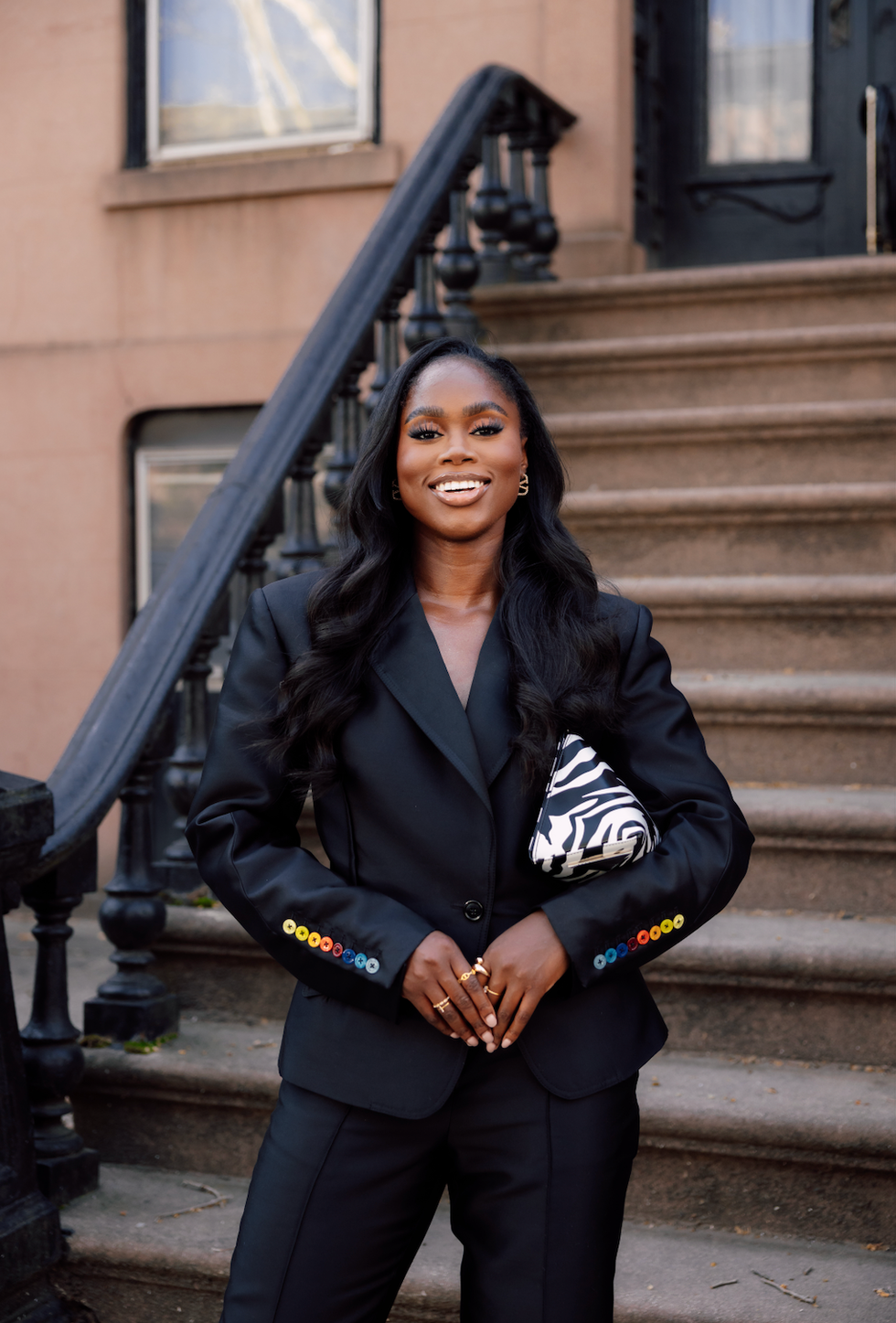
Content Creator Eni Popoola
Courtesy
Eni Popoola
Her Handle: @enipopoola
Her Title: Content Creator
Who's That It Girl: Eni Popoola is the visionary creative behind beautifully cinematic content that fuses fashion and feeling. We love her for proving that elegance and emotion can exist in every frame.
Her "Yes, And" Statement: "Yes, I'm not afraid to pivot and the best is still yet to come."

Content Creator Jessie Woo
Courtesy
Jessie Woo
Her Handle: @thejessiewoo
Her Title: Content Creator
Who's That It Girl: Jessie Woo is joy personified, a multi-talented entertainer and fearless truth-teller. We celebrate her for using humor, music, and faith to create content that heals through laughter.
Her "Yes, And" Statement: "Yes. I’m a force — and that’s why I create my own lanes instead of waiting for one to open."

Media Personality, Founder and Host Kayla Nicole
Credit: Malcolm Roberson
Kayla Nicole
Her Handle: @kaylanicole
Her Title: Media Personality; Founder, Tribe Therepē; Host, Welcome to the Pre-Game
Who's That It Girl: Kayla Nicole merges style, storytelling, and self-awareness like no other. We celebrate her for being the friend in our feeds who reminds us to show up fully, flaws, fire, and all.
Her "Yes, And" Statement: "Yes, I’m curating conversations on my podcast The Pre-Game, and cultivating community with my wellness brand Tribe Therepē."
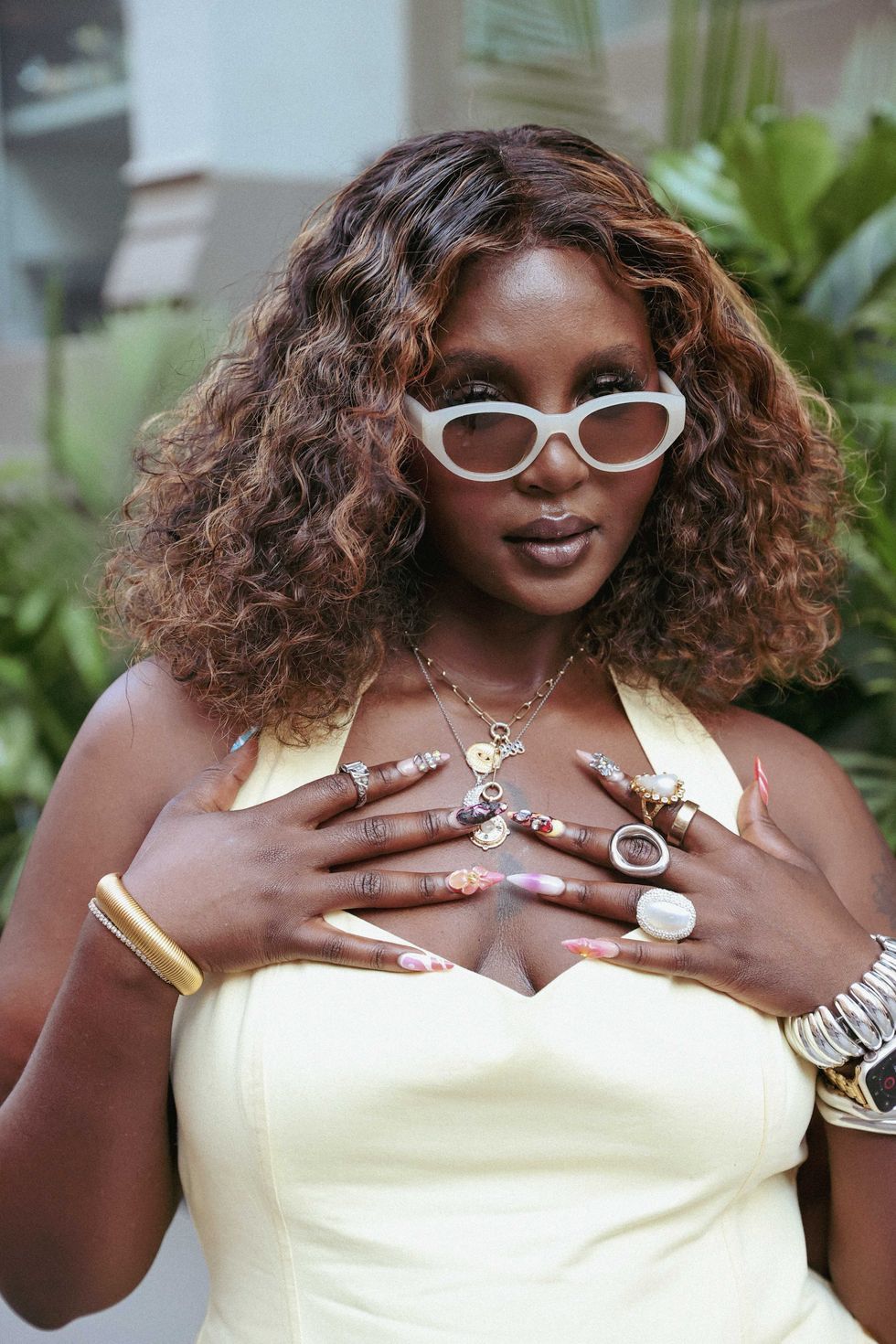
Creator and Entrepreneur Simi Muhumuza
Courtesy
Simi Muhumuza
Her Handle: @simimoonlight
Her Title: Creator and Entrepreneur
Who's That It Girl: Simi is a writer, and creative based in Brooklyn, NY. She focuses on style, lifestyle and wellness.
Her "Yes, And" Statement: "Yes, and I’m reaching even higher."

Creator Kiera Please
Courtesy
Kiera Please
Her Handle: @kieraplease
Her Title: Creator
Who's That It Girl: Kiera Please is a creator, voice actress, and artist whose creativity knows no bounds. With her unique mix of style, cosplay, and storytelling, she’s built a global fan base that celebrates self-expression.
Her "Yes, And" Statement: "Yes, I’m just weird girl and I’ll just keep getting weirder."

Content Creator Zaynah Bear
Courtesy
Zaynah Bear
Her Handle: @madame_zay
Her Title: Content Creator
Who's That It Girl: Zaynah Bear is a social media content creator known for her cartoon-style comedic storytelling that blends humor with everyday relatability. Her unique approach to creating content builds strong audience connections and keeps her community coming back for more laughs.
Her "Yes, And" Statement: "Yes, I'm boldly Black and beautifully quirky, owning every shade of my uniqueness."

Social Media Consultant and Creative Candace Marie
Courtesy
Candace Marie
Her Handle: @marie_mag_
Her Title: Social Media Consultant and Creative
Who's That It Girl: Candace Marie is a luxury social-media strategist and founder of Black In Corporate. A former Parsons professor, she’s worked with fashion powerhouses like PRADA and Victoria Beckham, helping shape a more inclusive industry.
Her "Yes, And" Statement: "Yes, I’m grounded in strategy & storytelling—and I’m creating pathways for the future of influence."

Model and Content Creator Quenlin Blackwell
Shutterstock
Quenlin Blackwell
Her Handle: @quenblackwell
Her Title: Model and Content Creator
Who's That It Girl: Quenlin Blackwell is digital dynamite, witty, unfiltered, and wildly creative. We celebrate her for turning chaos into comedy and self-expression into art that connects millions.
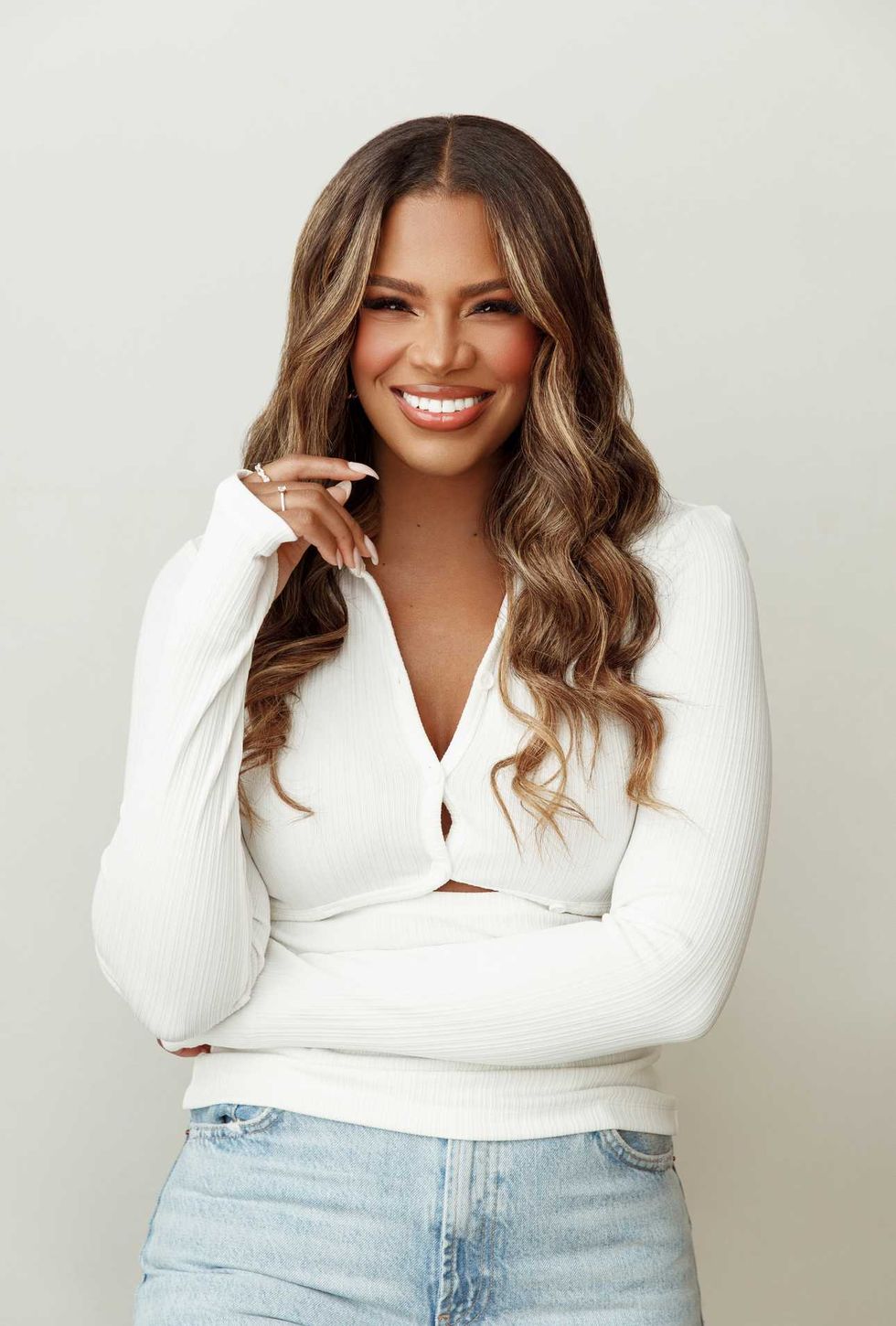
Content Creator and TV Host Kamie Crawford
Courtesy
Kamie Crawford
Her Handle: @kamiecrawford
Her Title: Content Creator and TV Host
Who's That It Girl: Kamie Crawford’s presence is as commanding as her compassion. We love her for being a media personality who advocates for confidence, self-worth, and love rooted in realness.
Her "Yes, And" Statement: "Yes, I'm that girl and I’ve had to heal parts of me to become her."
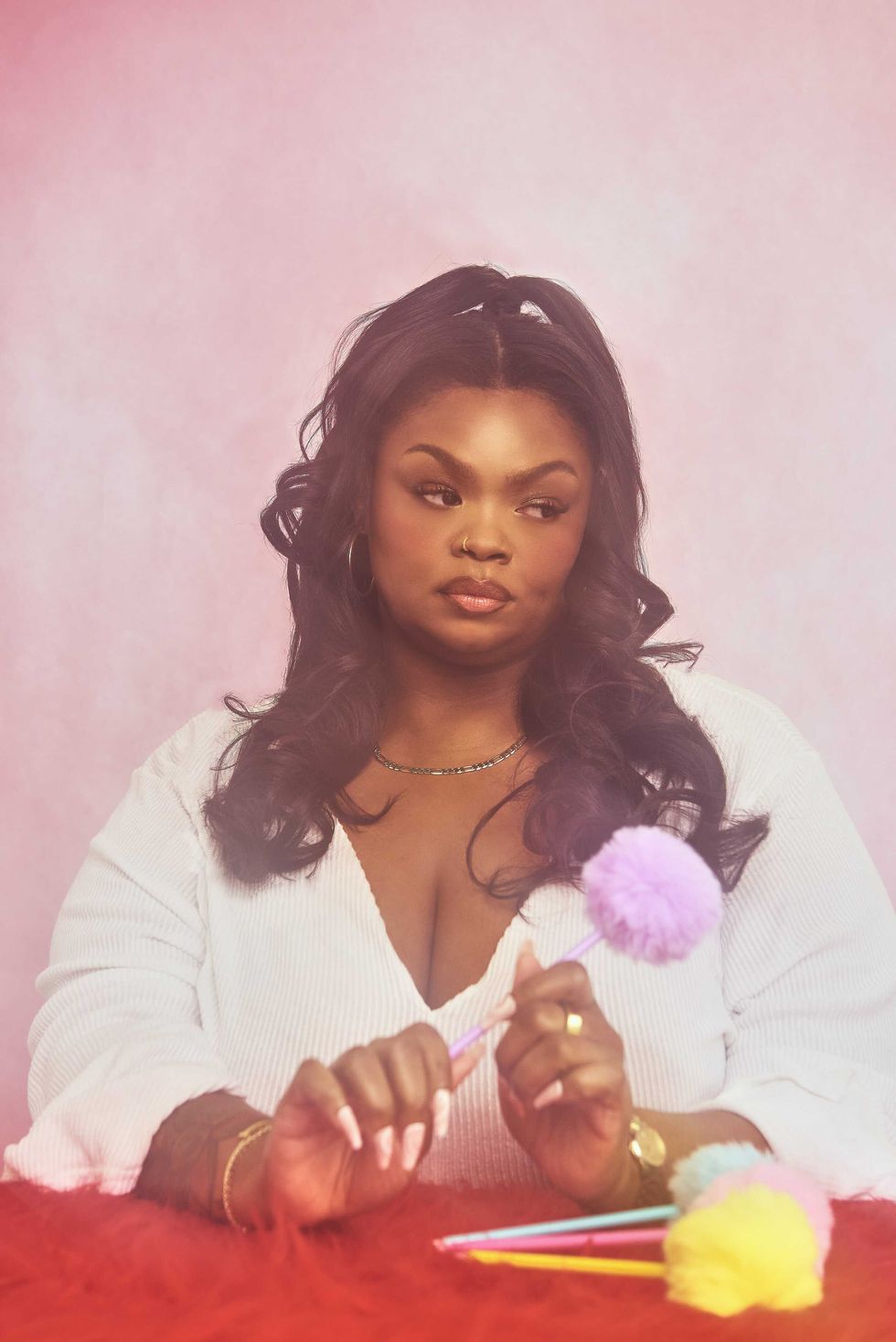
Author and Podcaster Sesali Bowen
Courtesy
Sesali Bowen
Her Handle: @badfatblackgirl
Her Title: Author and Podcaster
Who's That It Girl: Sesali was born and raised on the Southside of Chicago and coined trap feminism. During her time as an entertainment writer for Refinery29 she was one of the architects of Unbothered, their sub brand for Black women. As a brand strategist and copywriter she’s worked with Netflix, Onyx Collective, and more.
Her "Yes, And" Statement: "Yes, I said it and I’m standing on it."
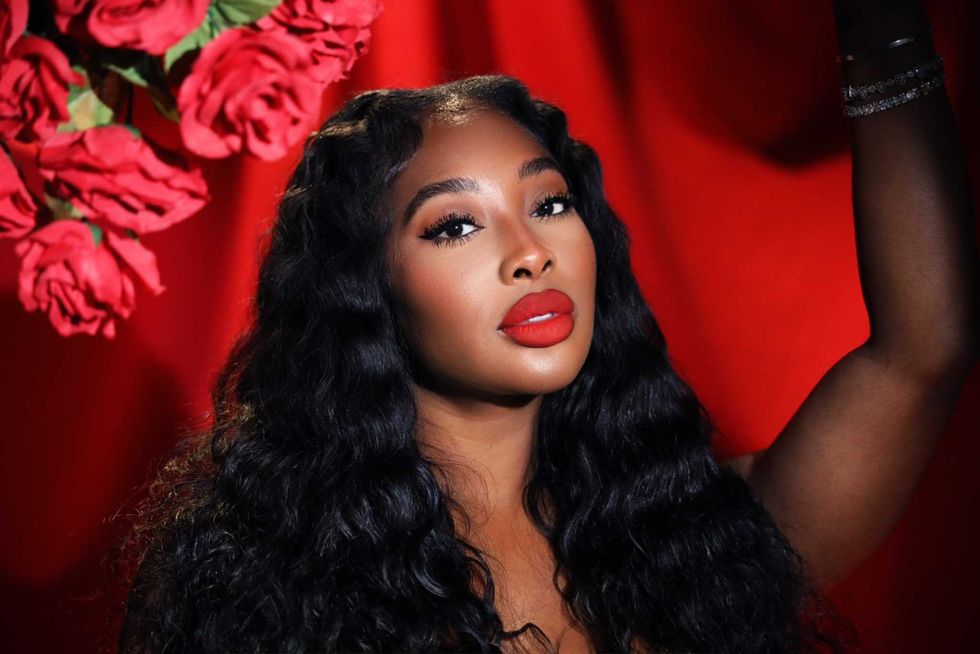
Co-Host of 'Pour Minds' Podcast Drea Nicole
Courtesy
Drea Nicole
Her Handle: @dreanicoleee
Her Title: Co-Host of Pour Minds Podcast
Who's That It Girl: As one-half of the hit podcast Pour Minds, Drea Nicole brings real talk with humor and heart. We celebrate her for creating spaces where women can laugh, learn, and live out loud.

Co-Host of 'Pour Minds' Podcast Lex P
Courtesy
Lex P
Her Handle: @lex_p_
Her Title: Co-Host of Pour Minds Podcast
Who's That It Girl: Lex P’s voice is bold, funny, and deeply authentic. We love her for turning the mic into a movement through Pour Minds, proving that humor and healing can thrive side by side.

Content Creator Jeannette Reyes
Courtesy
Jeannette Reyes
Her Handle: @msnewslady
Her Title: Content Creator
Who's That It Girl: Jeannette Reyes, known online as @msnewslady, went from the newsroom to building her own media brand. She’s a creator, speaker, and author using her platform to help women show up confidently on and off camera.
Her "Yes, And" Statement: "Yes, I take up space and I make room for others."

Founder of Mary Louise Cosmetics Akilah Releford
Courtesy
Akilah Releford
Her Handle: @akilahreleford
Her Title: Founder of Mary Louise Cosmetics
Who's That It Girl: Founder of Mary Louise Cosmetics, Akilah merges skincare and sisterhood with intention. We celebrate her for turning DIY passion into a thriving brand rooted in empowerment and care.

Award-Winning Journalist and Beauty Expert Kayla Greaves
Courtesy
Kayla Greaves
Her Handle: @kaylaagreaves
Her Title: Award-Winning Journalist and Beauty Expert
Who's That It Girl: Kayla Greaves is a journalist and on-camera expert who’s spent more than a decade telling stories that matter. From interviewing icons like Naomi Campbell to consulting for major brands, she continues to redefine beauty and culture.
Her "Yes, And" Statement: "Yes, I'm bold and I make no qualms about it."
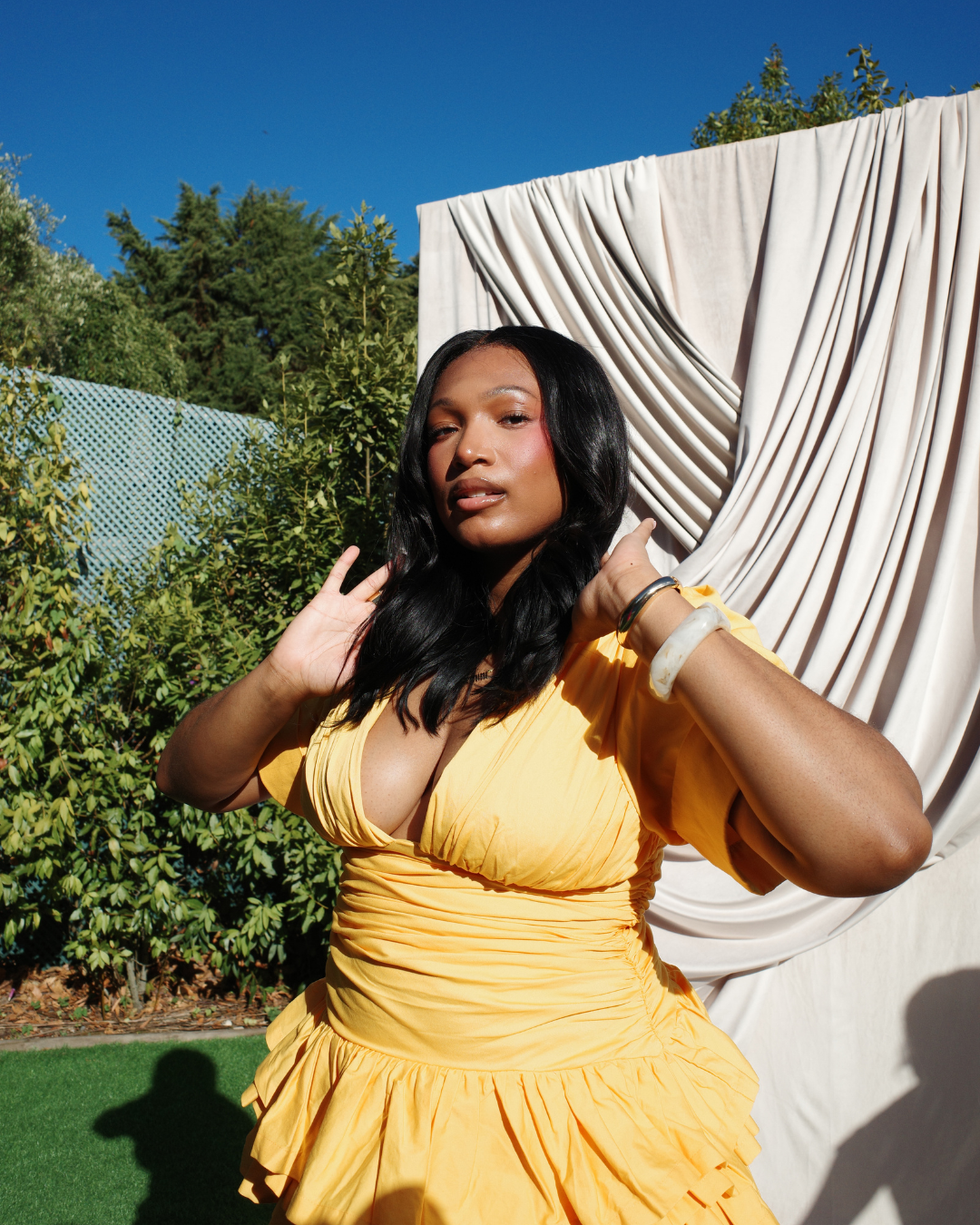
Digital Creator Lauren W.
Courtesy
Lauren W.
Her Handle: @laurenthelolife
Her Title: Digital Creator, Lifestyle and Beauty
Who's That It Girl: Lauren W. brings a breath of honesty to lifestyle content. We celebrate her for creating digital spaces that feel like safe havens for self-discovery, growth, and grace.
Her "Yes, And" Statement: "Yes, and I'll do it solo!"

Host of 'She's So Lucky' Podcast Les Alfred
Les Alfred
Her Handle: @lesalfred
Her Title: Host of She's So Lucky podcast
Who's That It Girl: Les Alfred is a media entrepreneur and cultural storyteller shaping the future of women-centered narratives. As the creator and host of She’s So Lucky (formerly Balanced Black Girl), an NAACP Image Award-nominated podcast, she has built a thriving media ecosystem that explores wellness and self-discovery through the lens of trail-blazing women.
Her "Yes, And" Statement: "Yes, I'm strong and I lead with softness."
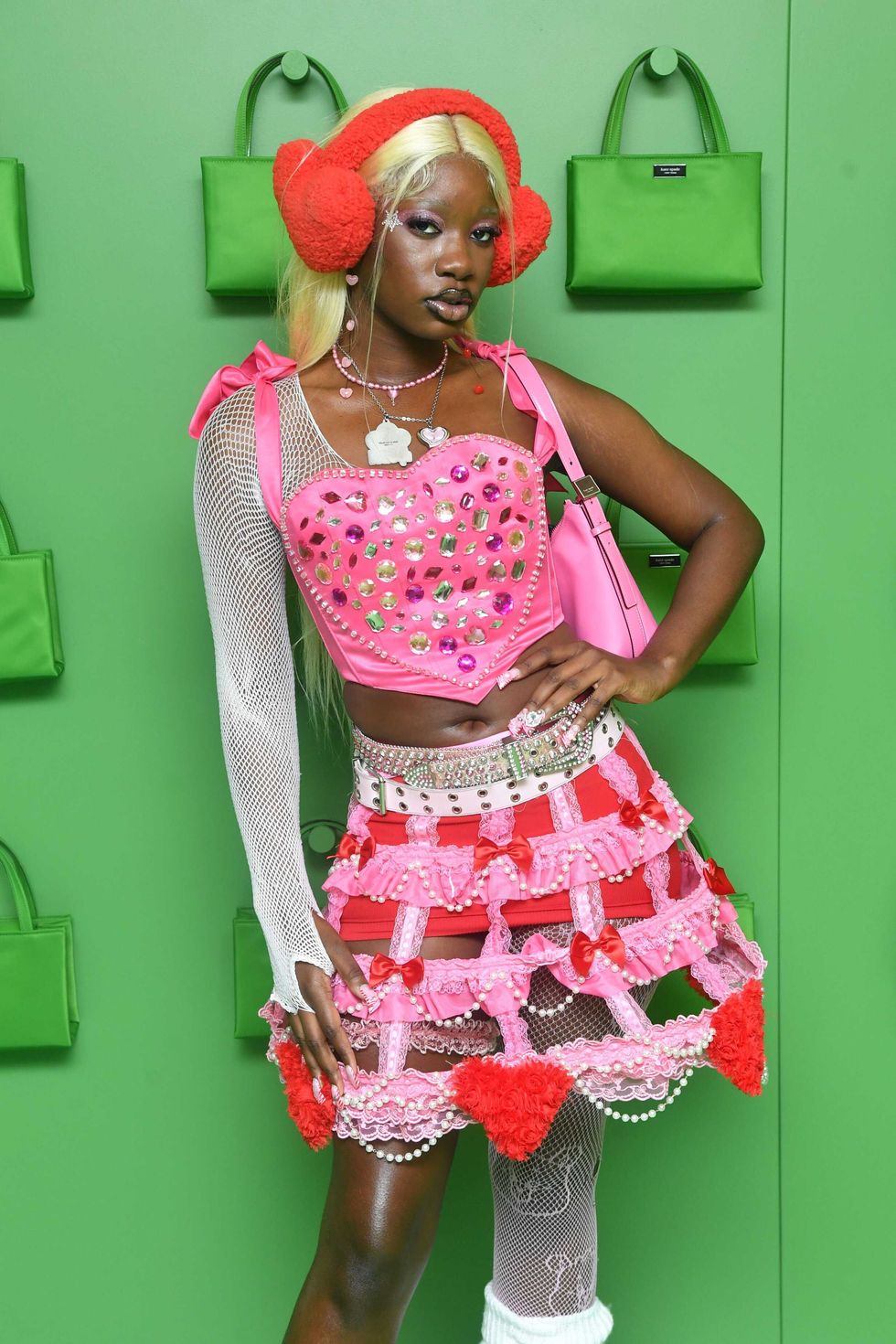
Influencer, Rapper and Actress Aliyah's Interlude
Shutterstock
Aliyah's Interlude
Her Handle: @aliyahsinterlude
Her Title: Influencer, Rapper and Actress
Who's That It Girl: Aliyah's Interlude brings softness and soul to the internet’s boldest spaces. We honor her for creating artful, introspective content that reminds us to slow down, reflect, and dream louder.
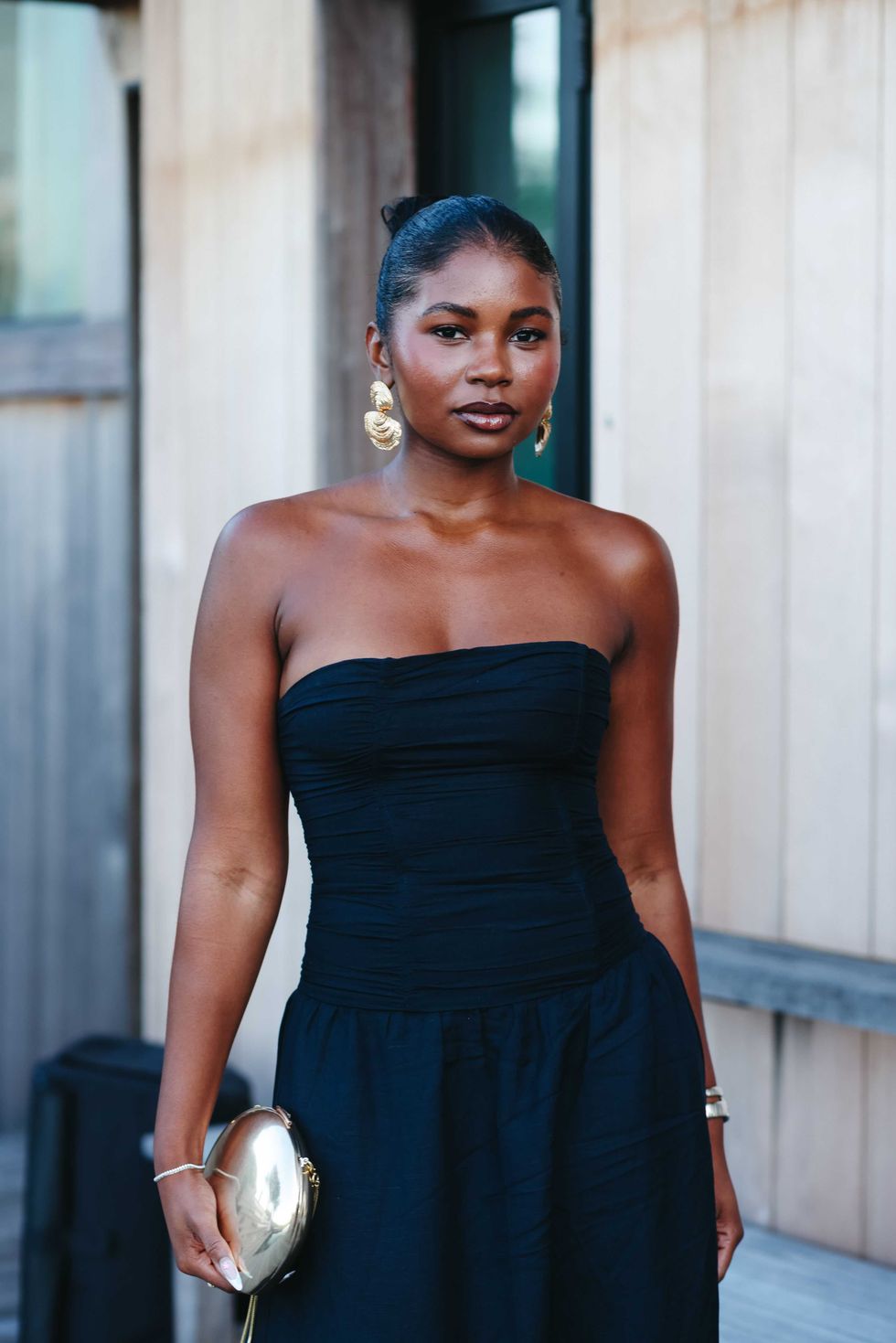
Beauty and Fashion Digital Creator Clarke Peoples
Shutterstock
Clarke Peoples
Her Handle: @clarkepeoples
Her Title: Beauty and Fashion Digital Creator
Who's That It Girl: Clarke Peoples creates content that feels like a warm conversation. We love her for her authenticity and for showing that influence grounded in truth never goes out of style.

Model and Content Creator Kamrin White
Courtesy
Kamrin White
Her Handle: @kamrinwhite
Her Title: Model and Content Creator
Who's That It Girl: We celebrate Kamrin White for transforming her lifestyle lens into something real and radiant. A proud Afro-Latina creator and entrepreneur, she weaves wellness, fashion, and authenticity into her content, inviting her audience to live boldly and vulnerably in their own stories.

Lifestyle and Beauty Creator Jayla Brenae
Courtesy
Jayla Brenae
Her Handle: @jaylabrenae
Her Title: Lifestyle and Beauty Creator
Who's That It Girl: Jayla Brenae inspires through her transparency and storytelling. We honor her for blending wellness, confidence, and community into content that uplifts and empowers women of all walks.

Journalist and Content Creator Casey Winbush
Shutterstock
Casey Winbush
Her Handle: @caseywinbush
Her Title: Journalist and Content Creator
Who's That It Girl: With humor and heart, Casey Winbush is the voice of digital relatability. We celebrate her for blending vulnerability with wit, turning everyday stories into shared laughter and healing.

Model and Owner of PLEASEPEARLME Kendra Austin
Shutterstock
Kendra Austin
Her Handle: @kendramorous
Her Title: Model and Owner of PLEASEPEARLME
Who's That It Girl: Kendra Austin is poetry in motion, writer, model, and muse. We honor her for redefining softness as strength and for giving women permission to rest, feel, and reclaim joy.
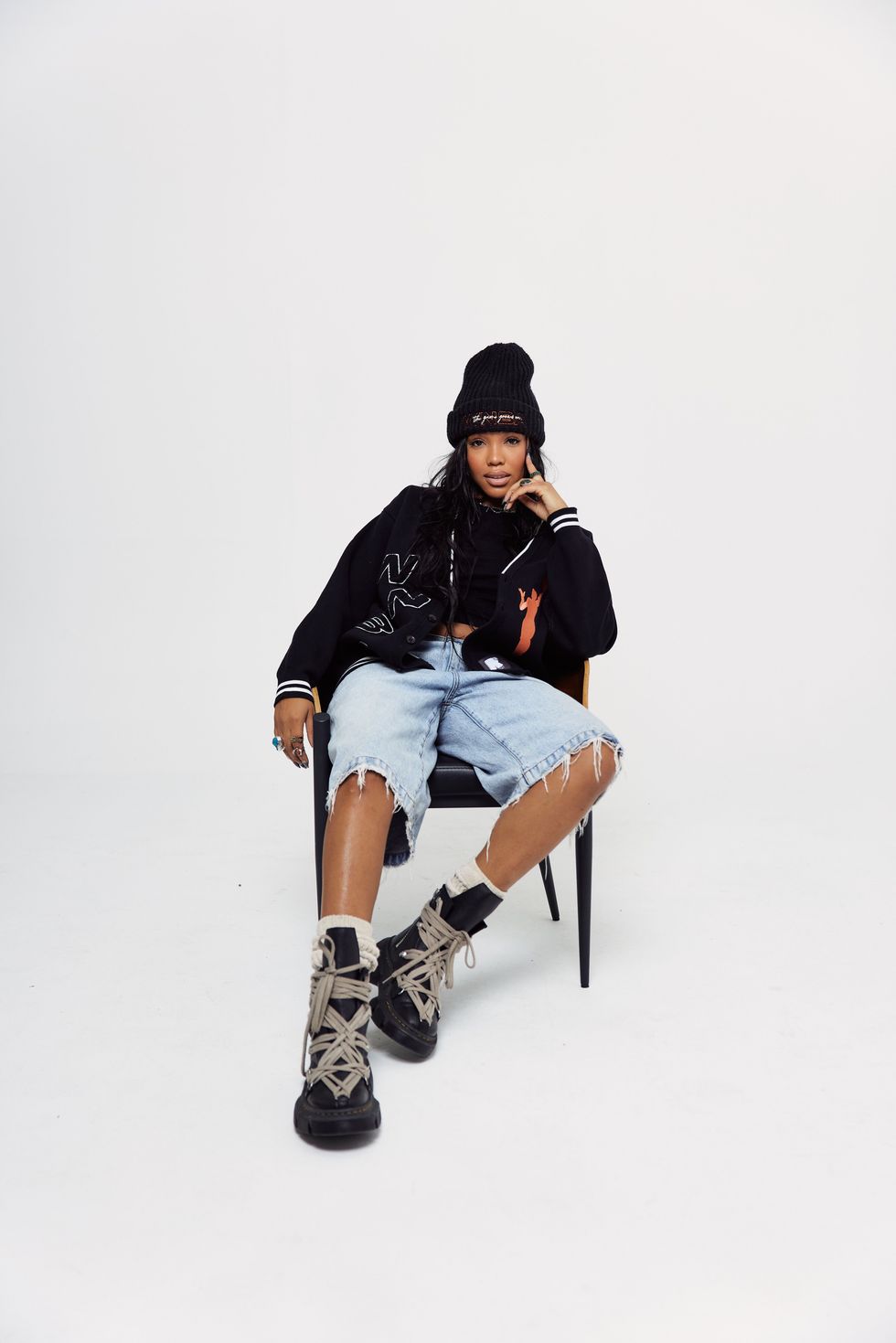
Multidisciplinary Visual Artist and Creative Entrepreneur Shema Love
Courtesy
Shema Love
Her Handle: @shemalove
Her Title: Multidisciplinary Visual Artist and Creative Entrepreneur
Who's That It Girl: Shema Love is a Brooklyn-based artist and designer turning art into healing. Her bold visuals and apparel celebrate Black joy, creativity, and self-expression, featured by Vogue, Nike, Netflix, and the WNBA.
Her "Yes, And" Statement: "Yes, I save lives and art saved me."
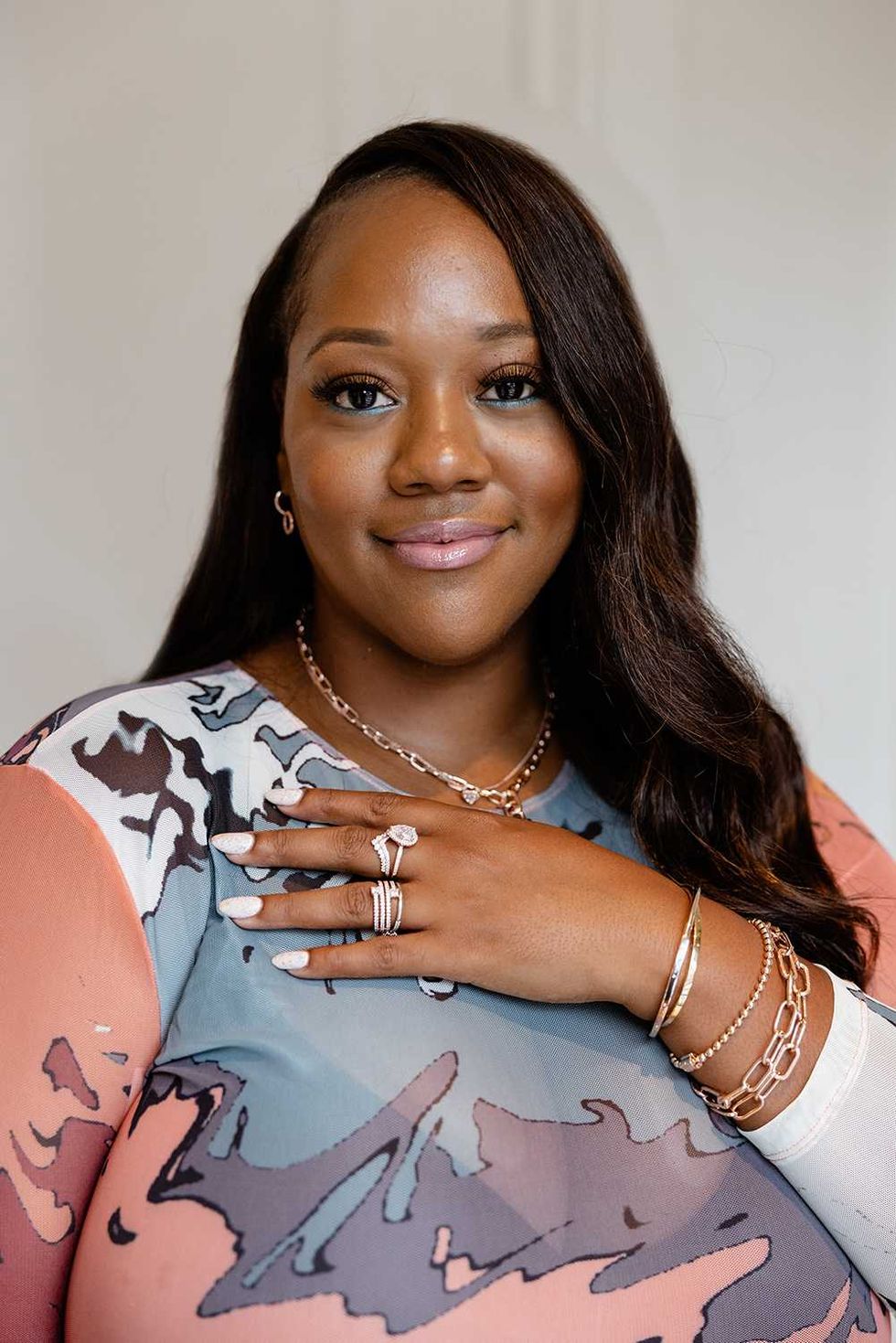
Content Creator Kristine Thompson
Courtesy
Kristine Thompson
Her Handle: @mskristine
Her Title: Content Creator
Who's That It Girl: Kristine Thompson is a fashion and lifestyle creator passionate about redefining style standards for plus-size women. Through her platforms, she shares inspiring fashion, beauty, and travel content that empowers her community to feel confident at any size.
Her "Yes, And" Statement: "Yes, I celebrate style and I challenge the idea that beauty comes in one size."
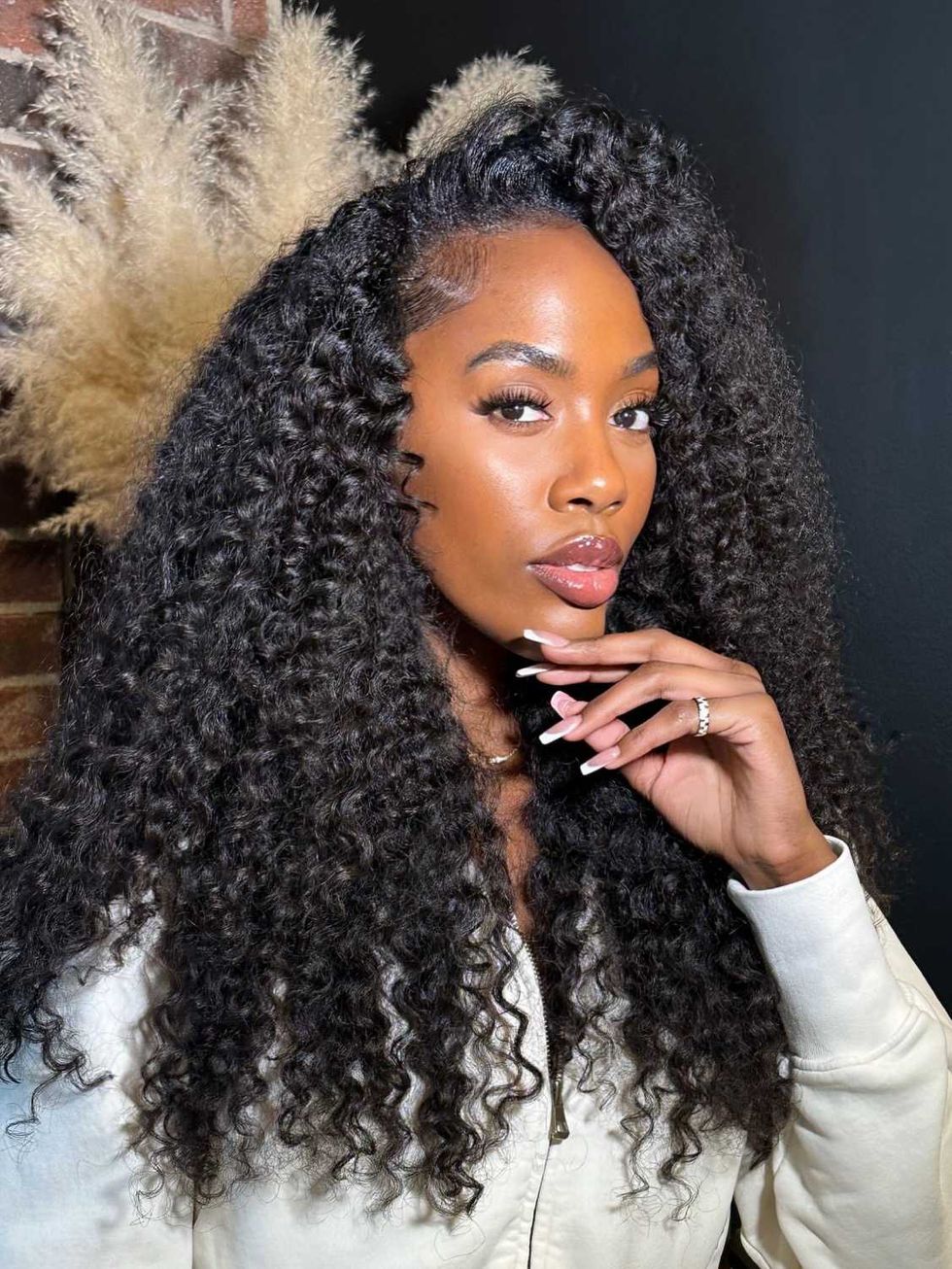
Beauty, Lifestyle and Fashion Creator Crystal Nicole
Courtesy
Crystal Nicole
Her Handle: @iamcrystalnicolee
Her Title: Beauty, Lifestyle and Fashion Creator
Who's That It Girl: Crystal Nicole’s storytelling moves between vulnerability and victory. We honor her for her ability to inspire others to be unapologetically themselves despite the pressures of social media and for crafting narratives that empower women to rewrite their own anthems.
Tap into the full It Girl 100 Class of 2025 and meet all the women changing game this year and beyond. See the full list here.
Featured image by xoStaff







